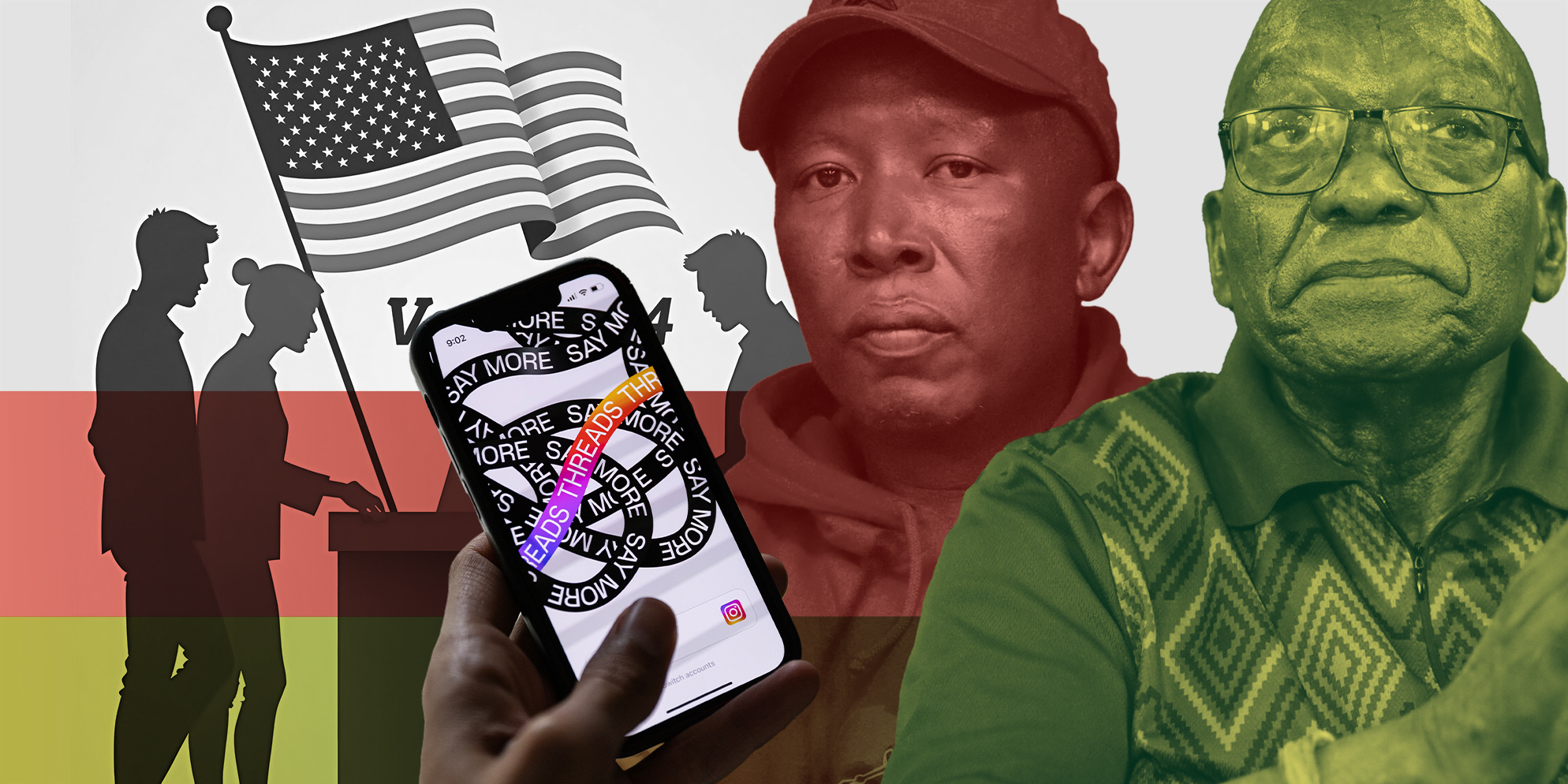In countries as different from one another as the US, Brazil, India and South Africa, the rise of social media has enabled the creation of different political tribes and huge changes in the way in which politics has been conducted.
Facts no longer appear to matter and the forces of those who oppose the current order have been able to grow.
This is often described as populism.
There are similarities between Jair Bolsanaro, Donald Trump, Narendra Modi, former president Jacob Zuma and EFF leader Julius Malema.
All of them use the politics of historical grievance and elements of racial, ethnic and religious identities to generate support.
But while these forces have sometimes appeared unstoppable, many democracies impose limits on how far populism can go.
Joe Biden, the ultimate Washington insider, was able to beat Trump in the race for the US presidency. Another insider, Lula da Silva, defeated Bolsanaro in Brazil’s presidential election. In India, Modi lost support in the elections, despite polls showing he would gain huge support.
As others have observed, our politics is almost defined by the tension between the constitutionalists and the populists.
The populists are best identified as Zuma and Malema. It could be argued that ActionSA leader Herman Mashaba and Patriotic Alliance leader Gayton McKenzie are also populists — both espouse xenophobia as a way of finding the “other” against whom to campaign.
Read more: Look Left, Look Right: What does ‘progressive’ mean in the coalition talks?
Historical grievance
A prism through which to understand and examine the rise of Trump and the huge levels of support he receives is to look at one long-term dynamic and one short-term dynamic.
The long-term dynamic, as many have stated (including Wits Professor John Stremlau), is that the US is no longer a majority-white nation. The phrase “Make America Great Again” is a simple dog whistle that really means “Make America White Again”.
However, this on its own was not enough to propel Trump to the presidency in 2017.
That is why the short-term reason was so important. It was provided by the economy, by the fact that many people in the US were poorer than their parents.
They believed the elites were ignoring them and Trump provided them with an outlet for their frustration.
In South Africa, the obvious historical grievance is our racialised inequality. Any successful populist would need to harness the tension over this issue.
While racialised inequality has decreased slightly since 1994, it is still the lived experience of the majority in SA.
This leads to the question of what the limits of populism in South Africa are.
Our society is defined by more than race. There are many other elements of identity that create our diversity.
This has driven the most important dynamic of the last 30 years, the fracturing of our politics, away from one large tent of the ANC towards many smaller tents. This is what Zuma and Malema are facing.
For the moment, it is not enough just to campaign against racialised inequality. Populists need other elements too.
Zuma has relied on his ethnic identity. The areas where MK won votes demonstrate how important this element was to his success. (This was also demonstrated in previous elections: the ANC’s share of the vote in KwaZulu-Natal increased when he was its leader in 2009 and 2014, and declined in 2019, before collapsing when he campaigned against the ANC in 2024).
Malema has tried to use the element of age to attract younger voters, appealing to them on ongoing issues of racialised inequality.
Read more: Swing towards right-wing populism — it’s up to the people to take a stand
The diversity defence
The approaches of Malema and Zuma contain limits.
Zuma has found it difficult to grow MK’s support outside KZN and Mpumalanga. Malema has found it difficult to grow support in KZN and Western Cape and he does not win many votes from older people.
This shows how the sheer diversity of our country could protect us from populism. It might well be impossible for one person or force to unite more than half of the country in an election.
Also, populists in South Africa have imposed limits on themselves by competing against each other.
Despite all of the conspiracy theories which posit that Malema is working with Zuma (which would explain Floyd Shivambu’s defection from the EFF to MK) it is more likely that they are competing against each other.
This competition weakens the chances of one single populist leader or force ever dominating our politics.
However, this does not mean that the forces of constitutionalism will always prevail.
The fact that arrests are made in fewer than 14% of murders in SA is proof that the rule of law does not protect most voters.
This is fertile ground for any populist who successfully harnesses the well-grounded fear and anger over crime.
It is worth repeating that if a populist force or a potentially undemocratic leader were ever to gain ground in South Africa, it would be because they have been able to win legitimacy through their promises to stop violent crime.
Read more: The politics of crime — and the crime in politics
Despite the limits our society imposes on populists, this vulnerability will remain.
In common with other democracies such as the US, populism is always possible in South Africa. However, it would be difficult for a single force to ever fully capture our society. DM





